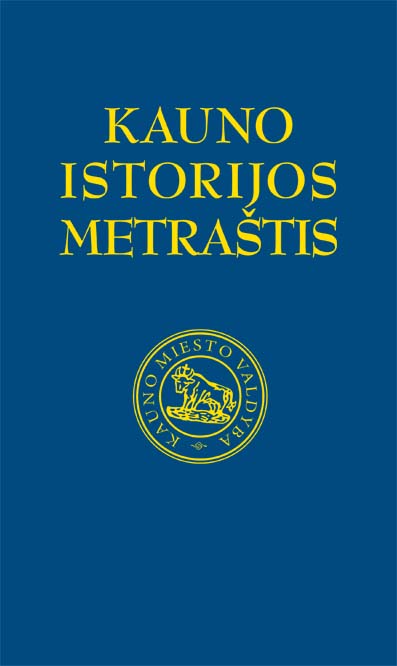Vasario 16-osios Lietuvos valstybingumo tradicija ir Kauno rusų bendruomenė: Jono Tatarincevo šeimos istorija
Lithuania’s Statehood of February 16th and Russian Community in Kaunas: The Family Story of Jonas Tatarincevas
Author(s): Andrius MarcinkevičiusSubject(s): Local History / Microhistory, Political history, WW II and following years (1940 - 1949)
Published by: Vytauto Didžiojo Universitetas
Keywords: manors of Kaunas environs; city culture; historical narratives; publicistic writing; Lithuanian society in the 1930s.;
Summary/Abstract: The present article discusses the relationship between tradition of Lithuania’s statehood of February 16th and identity formation of Lithuanian Russians in 20th century. The past of Russian ethnic group in Lithuania is most often interpreted by contemporary public discourse (politicians, online and printed media) considering two different perspectives. The first one is based on dominant in Lithuania narrative of the soviet occupation and the other one deal with official position of Russia to the history of World War II and politics of commemoration of its victims. Differences that characterize these two narratives lead often to presentation of various negative aspects from the past of Lithuanian-Russians relations in public discourse. 100th anniversary of restoration of Lithuania’s statehood serves as opportunity for analysis of alternative (positive) experiences based on common history. That’s why the present article focuses on family story of lawyer Jonas Tatarincevas who lived in Kaunas 1918–1941 and made his contribution to development of Lithuania’s statehood. It is revealed in the article what was influence of most important political processes of the first half of 20th century to formation of civic, ethnic and cultural identity of Jonas Tatarincevas and his family members. The family story of Jonas Tatarincevas symbolizes integration of Russians to Lithuanian society combining loyalty to tradition of Lithuanian statehood of February 16th and preservation of non-dominant ethnic and cultural identity. It is concluded that during the first Soviet occupation (1940–1941) many well-integrated families of Russian intelligentsia in Kaunas shared a similar loss to thousands families of Lithuanians (arrests, repressions, deportations). This kind of historical experiences are still not reflected in contemporary Lithuania’s public discourse and dominant historical narrative.
Journal: Kauno istorijos metraštis
- Issue Year: 2019
- Issue No: 17
- Page Range: 97-116
- Page Count: 20
- Language: Lithuanian

